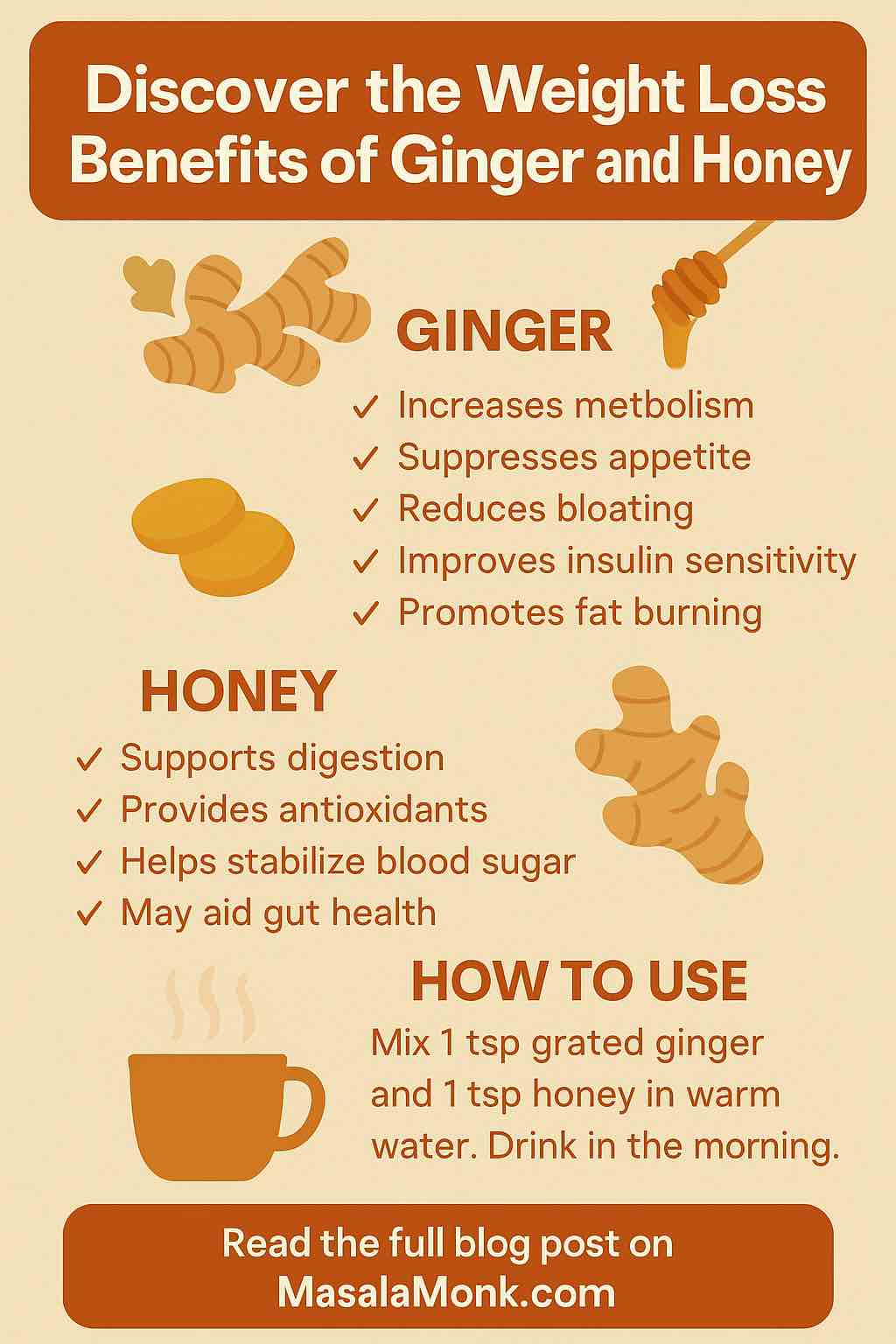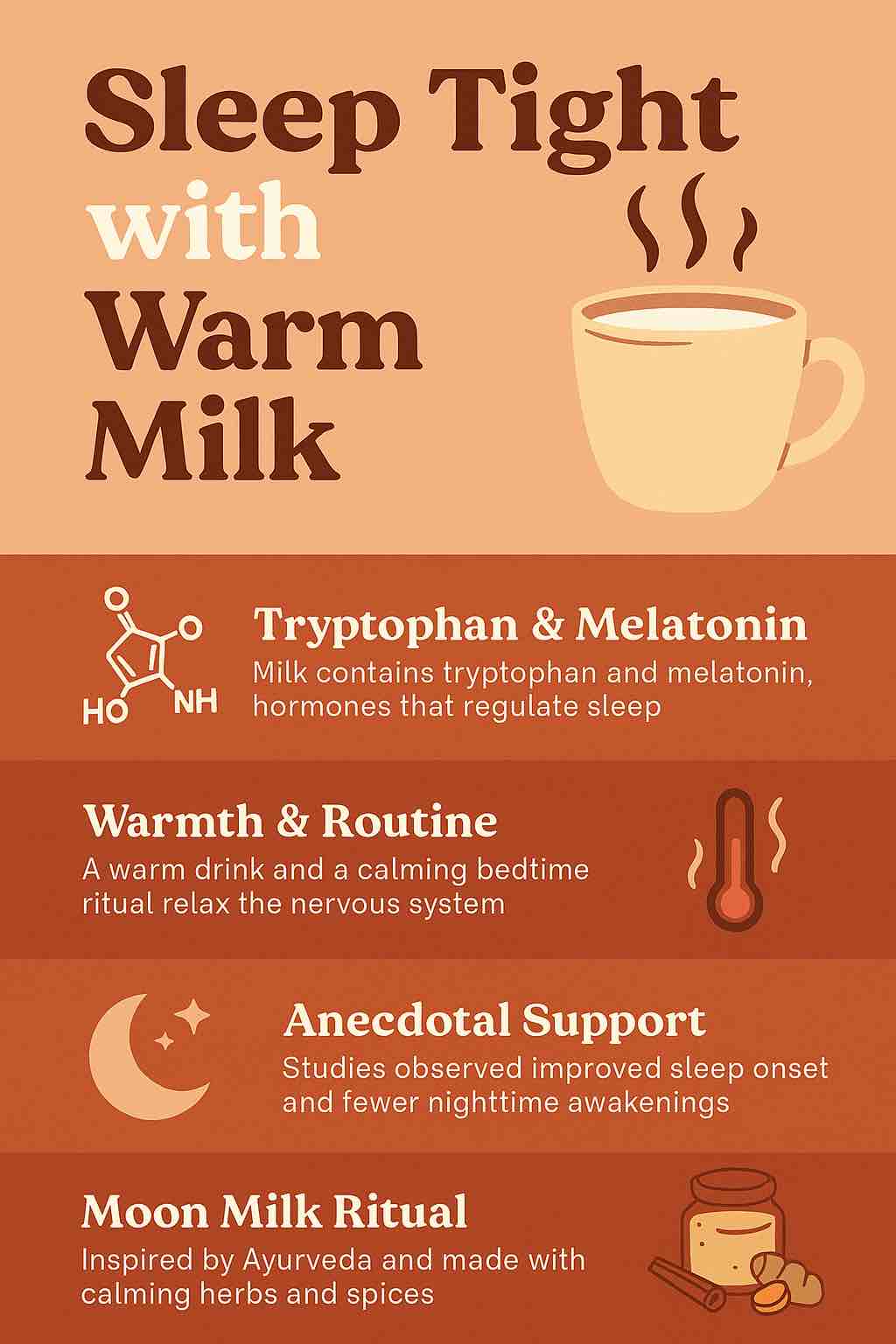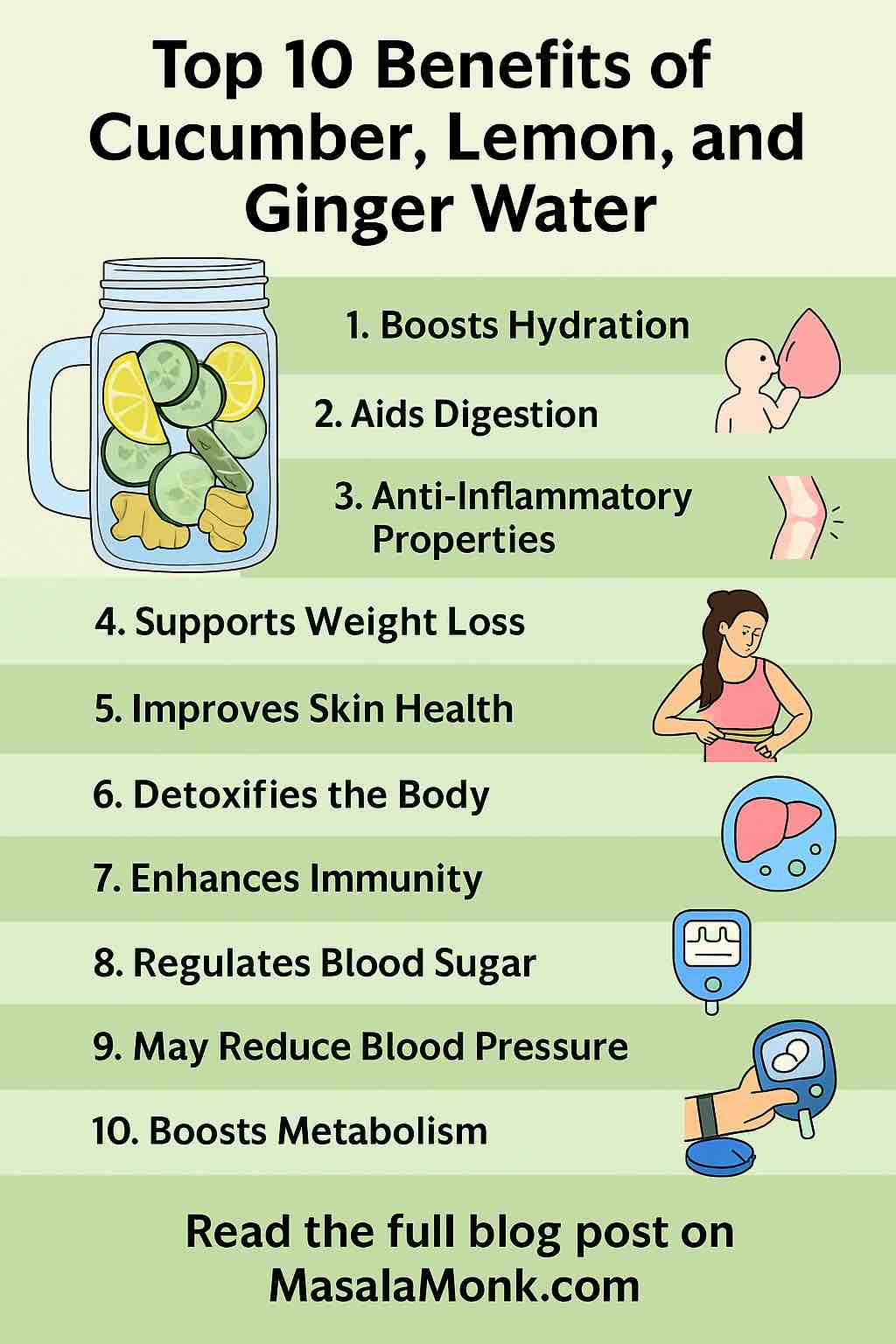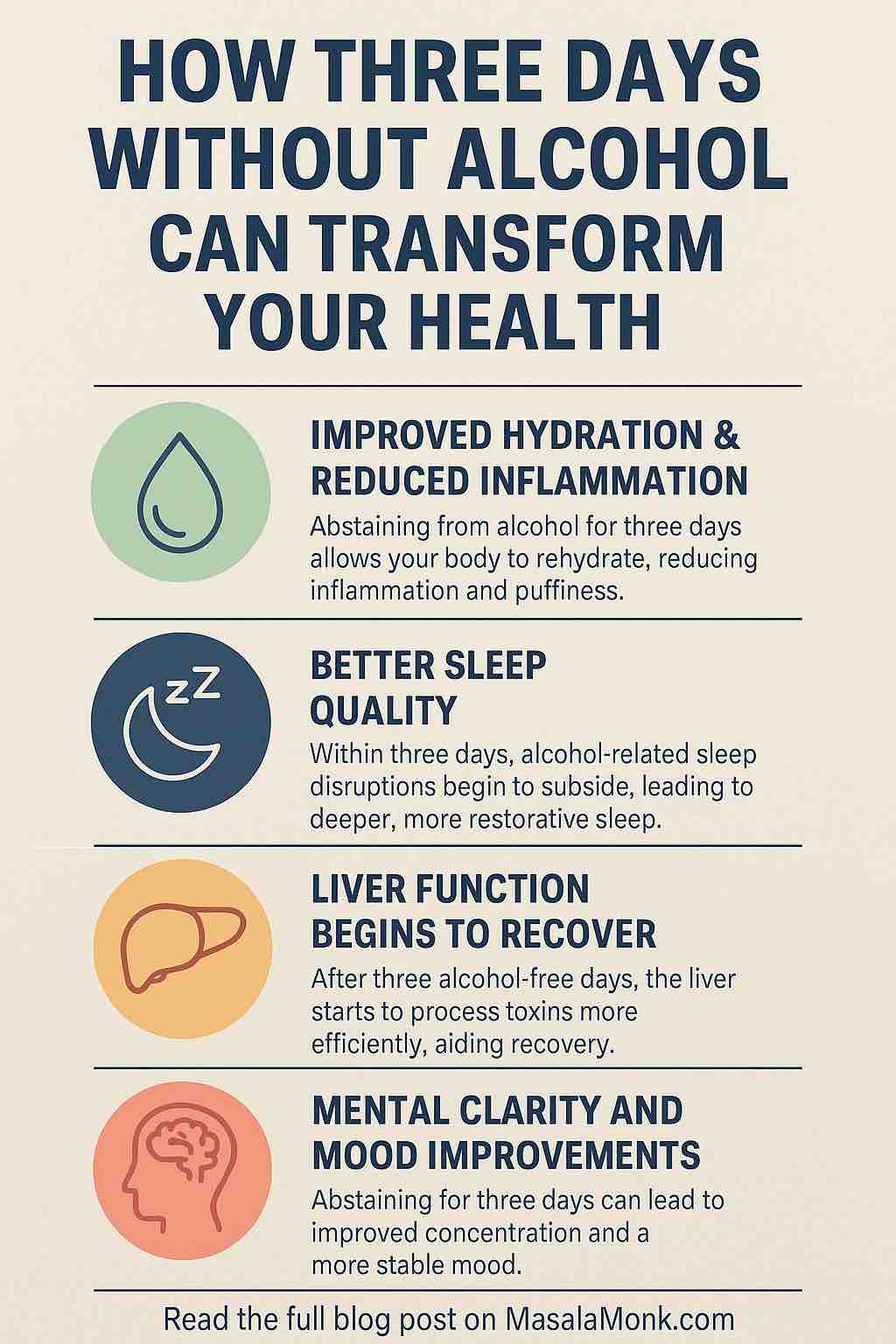
In the pursuit of effective and sustainable weight loss strategies, many are turning to natural remedies that offer more than just calorie burning. Among the most talked-about combinations in health and wellness circles is ginger and honey. Both ingredients have been used in traditional medicine for centuries, and modern science is now catching up to validate their potential benefits. This blog dives deep into how ginger and honey can support weight management, supported by the latest research and practical tips to incorporate them into your daily routine.
Section 1: Ginger – The Metabolic Activator
What Makes Ginger Effective?
Ginger (Zingiber officinale) is rich in bioactive compounds such as gingerol, shogaol, and paradol. These compounds have powerful antioxidant and anti-inflammatory properties that make ginger a potent natural remedy.
Scientific Evidence
Recent meta-analyses, including a 2024 study involving 27 randomized controlled trials, found that consuming around 2 grams of ginger daily for at least 8 weeks can lead to significant reductions in body weight, waist circumference, and body fat percentage. The mechanisms behind these results include:
- Thermogenesis: Slightly increasing body temperature, thus boosting metabolic rate.
- Appetite Suppression: Modulating serotonin and dopamine receptors to reduce hunger.
- Improved Insulin Sensitivity: Supporting better glucose metabolism.
- Fat Oxidation: Enhancing the breakdown of stored fat.
How to Use Ginger
- Fresh grated ginger in teas or smoothies
- Ginger powder in cooking or capsules
- Ginger-infused water as a detox drink
Section 2: Honey – Nature’s Sweet Metabolic Support
Nutritional Profile
Honey is more than just a natural sweetener. It’s packed with antioxidants, flavonoids, and phenolic acids that provide anti-inflammatory and metabolic benefits. Unlike refined sugar, honey has a lower glycemic index and contributes to overall metabolic health when consumed in moderation.
Scientific Insights
A 2021 review noted that daily intake of around 70 grams of honey (about 3.5 tablespoons) resulted in a modest decrease in body weight and fat mass, especially when replacing refined sugar. However, it’s important to balance intake to avoid excessive sugar consumption.
Health Mechanisms
- Antioxidant Support: Reduces oxidative stress associated with obesity.
- Gut Health: Acts as a mild prebiotic to nourish good gut bacteria.
- Blood Sugar Regulation: Modulates glycemic response when used wisely.
How to Use Honey
- Mix into warm (not hot) water to preserve enzymes
- Blend with herbal teas or ginger shots
- Use in place of sugar for healthier baking
Section 3: Ginger + Honey – Better Together?
While studies on the combination of ginger and honey are limited, early evidence and traditional use suggest a synergistic effect. For instance, animal studies have shown that ginger-honey mixtures outperform either ingredient alone in reducing triglycerides and oxidative stress.
Practical Recipe: Morning Detox Elixir
Ingredients:
- 1 cup warm water
- 1 teaspoon freshly grated ginger (or 1/2 tsp ginger powder)
- 1 teaspoon raw honey
- Optional: juice of half a lemon
Instructions:
- Combine all ingredients in warm (not boiling) water.
- Stir well and drink on an empty stomach in the morning.
This simple elixir may support digestion, kickstart metabolism, and curb cravings throughout the day.
Section 4: Safety, Dosage & Best Practices
Safe Dosage
- Ginger: Up to 4 grams per day is generally safe for most people.
- Honey: Stick to 1-2 tablespoons daily, especially if watching caloric intake.
Cautions
- Ginger may cause heartburn or interact with blood thinners.
- Honey should be avoided by infants under 1 year due to botulism risk.
- Diabetics should monitor blood sugar levels when incorporating honey.
Section 5: Final Thoughts – A Holistic Approach
Ginger and honey are not magic bullets, but when used as part of a balanced lifestyle, they can provide meaningful support in your weight loss journey. They offer a blend of science-backed metabolic benefits and centuries of traditional wisdom.
Tips to Maximize Benefits:
- Combine with regular exercise and a whole-foods diet.
- Stay consistent: benefits build over time.
- Listen to your body and consult a healthcare provider for personalized advice.
In the world of natural remedies, few combinations are as simple, accessible, and effective as ginger and honey. Give it a try, and experience how nature’s duo can help you feel lighter, more energized, and better from the inside out.
✅ Quick Summary Table
| Ingredient | Dose/Intervention | Weight Loss Effect | Mechanisms |
|---|---|---|---|
| Ginger | 2 g/day, ≥8 weeks | ~1.5 kg, ↓ waist & body fat | Thermogenesis, appetite control, inhibit fat cell formation |
| 6‑Shogaol extract | Clinical SGE capsules | Significant ↓ weight/BMI | Suppresses adipogenesis genes (PPARγ, etc.) |
| Honey | 70 g/day, 30 days | ~1.3% weight, 1.1% fat loss | Polyphenols modulate fat metabolism, but sugar risk exists |
| Ginger + Honey | — (no RCT yet) | Anecdotal; no high‑quality trials | Expected synergy via combined metabolic & antioxidant effects |
🔍 Key Takeaways
- Strongest evidence centers on ginger—2 g/day for ≥8 weeks reliably yields modest but meaningful weight and fat loss.
- Honey alone may help slightly but must be used judiciously due to its sugar content; moderate doses (~1–2 tbsp daily) recommended.
- The combo is popular traditionally and plausible mechanistically—but requires more human trials to verify its effectiveness and optimal dosing.
FAQs: Ginger and Honey for Weight Loss
1. Can I take ginger and honey together every day?
Yes, daily consumption is generally safe for most people. One cup of warm water with 1 tsp ginger and 1 tsp honey in the morning is a common and effective routine.
2. How long does it take to see weight loss results with ginger and honey?
Most studies report measurable effects after 8 weeks of consistent use, especially when combined with a healthy diet and exercise.
3. Is powdered ginger as effective as fresh ginger?
Powdered ginger retains many benefits and is effective, though fresh ginger may contain slightly more active compounds. Choose based on convenience and tolerance.
4. Can I add lemon to the ginger and honey drink?
Absolutely. Lemon adds vitamin C and supports digestion and detoxification. It pairs well with ginger and honey for added benefits.
5. Can diabetics use honey for weight loss?
Caution is advised. While honey has a lower glycemic index than refined sugar, it still impacts blood sugar. Diabetics should consult a healthcare provider before use.
6. Are there any side effects of consuming ginger daily?
Ginger is safe in moderate doses (up to 4 g/day) but may cause heartburn, gas, or interact with blood-thinners. Start small and monitor your body’s response.
7. What’s the best time to take ginger and honey for weight loss?
Morning, on an empty stomach, is ideal. This helps kickstart your metabolism and improve digestion for the day ahead.
8. Can I use honey in hot tea with ginger?
Yes, but let the tea cool slightly before adding honey. High heat can destroy honey’s enzymes and antioxidants.
9. Does this drink replace meals or snacks?
No, it’s not a meal replacement. It’s a supplement to your weight loss routine and should be combined with healthy eating habits.
10. Can I prepare ginger and honey drinks in advance?
Fresh is best for potency, but you can prep a batch for 2–3 days. Store it in the fridge and gently warm before use—don’t boil.













